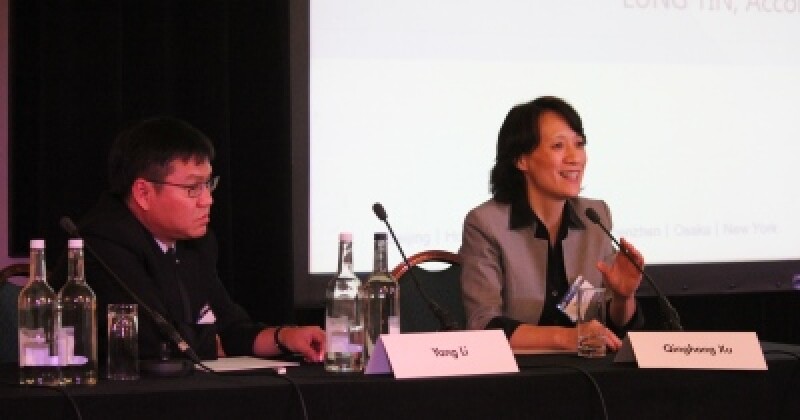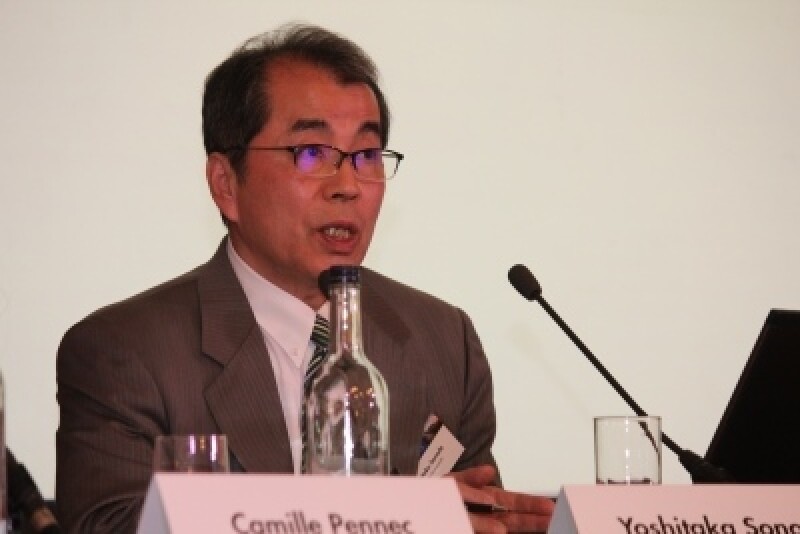Navigating China

The event kicked off with a session on China. Dang Xiaolin of Sanyou illustrated his presentation on the country’s IP legal framework with a series of slides showing sharply upward-sloping line graphs: number of IP rights applied for; number of disputes filed; and the number of cases assigned to each judge. If any of the audience needed convincing of the importance of protecting and enforcing their rights in China, the slides undoubtedly did their job.
Dang outlined some of the challenges of litigating in China to those IP owners more familiar with a discovery-based regime. The formality requirements for evidence in China is very high, and standards are very strict. He also urged foreign IP owners to take greater advantage of the country’s utility model patent system, which allows applicants to secure IP rights quickly and cheaply. Although they are often regarded by many foreign IP owners as low-quality, the proportion of utility model patents upheld by the courts is almost as high as that of invention patents.
Lawyers from Liu Shen & Associates echoed Dang’s comments on the value of utility models in a session on obtaining strong patent protection in China. In an entertaining presentation that saw him likening the patent process to that of a blacksmith forging a sword for his litigation knight, Andy Booth of Dyson offered tips for patent attorneys who apply for rights in China. “Prepare your China application when you write your priority application,” he advised. “The inventors are still around and excited about working with you because it’s their idea.”

Later on, lawyers from Lung Tin outlined some of the rules on patentability in China, explaining how attorneys can navigate the regulations on pharmaceutical and business method patents, among others.
Finally, two Chinese lawyers from Shanghai Patent and Trademark and two foreign lawyers compared the merits of alternative dispute resolution techniques. Jamie Rowlands of Wragge Lawrence Graham 7 Co emphasised the difference between mediation and arbitration (“the former is quick and sometimes dirty, the latter is an altogether different being that is binding from the outset,” he said). Parties may have a number of reasons for choosing to arbitrate, Rowlands said. It offers a far greater degree of confidentiality than litigation, but more enforceability than mediation. “But if you go down the arbitration route it is always helpful to agree that the chair of the panel has a different nationality to that of either of the parties,” he said.
Liza Tóth was an enthusiast for mediation, dispelling some of the myths about it and underlining some of its virtues: flexibility, cost and its ability to incorporate wider commercial disputes into the final deal. Rowlands admitted he saw its many advantages but said that choosing a capable, authoritative mediator is key to success. “He or she has to deal with some very big egos. And that’s just the lawyers.”
Japan and Korea

The number of registered IP rights might be soaring in China, but the line graphs are pointing downwards in Japan. Yoshitaka Sonoda of Sonoda Kobayashi explained that the reason was partly related to a new focus on obtaining IP rights overseas on the part of Japanese businesses. Gwilym Roberts of Kilburn & Strode recounted his recent experiences helping a client litigate a patent in Japan, explaining that his UK client and its US rival lived up to Anglo-Saxon stereotypes by being determined to fight to the end, despite the Japanese judge urging them to seek a settlement. He advised would-be foreign litigants to be very clear with their local lawyers from the outset as to what they would regard as a good outcome. “The court found my client’s patent valid and infringed but we had to appeal to get damages and an injunction,” he said.
Speakers from Y P Lee, Mock and Partners and Yulchon focused on the interplay between patent rights and antitrust concerns during a session on Korea. They explained how the Fair Trade Commission treats patent litigation between technology companies when assessing when a dominant player has abused that dominance and why IP lawyers and antitrust lawyers need to communicate more effectively.









